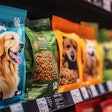
More than a year has passed since the U.S. Food and Drug Administration warned consumers that the agency was investigating a correlation among canine dilated cardiomyopathy (DCM) and certain grain-free dog foods made with high percentages of peas, lentils or potatoes. Dog food formulators reacted to the FDA announcement and resultant consumer fears in a variety of ways, despite the lack of proven causality between DCM and specific dog diets.
Dog food formulators adapted by bringing grains back to some recipes or reframing the marketing of existing formulations made with grains, especially those made with ancient grains and similar ingredients. These crops have been recently promoted as "healthy grains," differentiating them from trend pariahs like corn and soy. Meanwhile, brands added taurine, an amino acid involved in DCM. Some dog food recipes have dropped legumes and potatoes, or reduced their prevalence.
“Whenever there is a narrative that links product attributes to pet mortality, it will change purchasing behavior,” Bryan Jaffe, managing director of Cascadia Capital, said. “The Chinese melamine scandal of 2007 to 2008 is a good historical example of this. Pet owners, wanting the best for their companion animals, will set aside their brand or product loyalty and embrace new solutions against this backdrop. Linkages between DCM and BEG [boutique, exotic, grain-free] diets, whether real or perceived, are driving behavioral change among pet owners as evidenced by the sale declines of grain-free in 2019.”
FDA made its first announcement in July 2018. At around that time, September 2018, U.S. grain-free pet food sales stood at US$2.9 billion, according to Nielsen sales data, growing at 9.6% year-over-year. However, by September 21, 2019, grain-free pet food sales had declined 0.3%. What’s more, 16 pet food brands experienced subsequent sales declines after the FDA identified them in June 2019 as being varieties eaten by dogs in the DCM investigation. From mid-July 2019 through the first week of October, the brands collectively decreased by approximately 10%. While grain-free dog foods suffered, other brands seized the niche created by the FDA investigation.
“Brands that can quickly formulate solutions that are aligned with revised consumer preferences have the opportunity to take advantage of this and acquire customers and shelf-share at retail,” Jaffe said.
Dog food brands react to DCM investigation
Dog food formulators followed several different strategies as they searched for ways to formulate dog foods that would assuage consumer fears. The dearth of empirical evidence connecting any specific attribute of grain-free formulations to DCM made it difficult to know what to put in or take out of new dog food products. In the case of Caru Pet Food Company, some recipes changed in several ways, while maintaining their palatability.
“While they’re still trying to pinpoint the exact causes of canine heart disease, at Caru, we’ve taken a proactive stance and recently updated our recipes,” Adrian Pettyan, CEO and co-founder of Caru Pet Food Company, said.
Caru reduced the proportion of peas and white potatoes in their Classic Stews and Daily Dish Stews, while increasing the amount of animal protein. All Caru stews for dogs now include an efficacious amount of taurine, she said.
“It does cost us a little more to add this amino acid to our canine stews, but for the peace of mind of our valued customers, it’s worth it. Of course, our cat recipes have always contained added taurine," Smith said.
Merrick Pet Care was already using grains, including brown rice and oatmeal, in their formulations a decade before the FDA investigation began, Jilliann Smith, director of communications for Merrick, said.
“These healthy grains are easy for dogs to digest, are an excellent source of energy and offer a good balance of carbohydrates and fiber,” she said.
However, Merrick’s dog food formulators did react to the sudden pet owner concern over DCM. In January 2020, “Healthy Grains” will be added to Merrick Classic recipes’ name to make it clear that the products contain ancient grains, such as quinoa and barley. Merrick also plans to update their classic recipes to be pea free and lentil free in addition to the brands’ current potato free claim. New Merrick dog food products also will address DCM concerns.
“We quickly shifted our innovation plans over the last few months to address the increased interest among pet parents in grain-inclusive recipes for dogs,” Smith said. “We just introduced two new limited ingredient diet recipes that feature healthy grains like brown rice, oatmeal and barley. Both recipes – salmon and brown rice and chicken and brown rice – are free of peas, chickpeas and lentils. All our limited ingredient diet recipes are supplemented with taurine and DL-methionine to ensure they deliver a strong amino acid profile.”
Caru and Merrick weren’t the only pet food companies to take measures to address DCM. At SuperZoo 2019, numerous dog foods in the new products section touted that the recipes were free from ingredients noted in the FDA announcement, such as peas, lentils and potatoes. At the same time, new dog foods increasingly used marketing terms like grain-friendly, healthy grains or ancient grains.
While the trend of including non-traditional and ancient grains pre-dates the DCM announcement, ingredients like quinoa, chia and amaranth seemed more common in new products this year. It may be that these filled a niche as pet food formulators tried to bring grains back into pet foods without using previously maligned ingredients, like corn and wheat.
For example, the package of Stella and Chewy’s new wholesome grains raw-coated kibble noted that the product was potato and legume free on the front panel. The grains included pearled barley, oatmeal, brown rice and quinoa. Similarly, Pets Global debuted their Inception line. Inception’s marketing highlights that the dog food is free from potatoes and legumes, along with no corn, soy or wheat. However, the brand does contain non-traditional grains, including milo and millet.
Beyond dog foods, treats and supplements also address the situation created by the ongoing DCM investigation. One new product, InClover’s BioVibrant Taurine Plus, allows dog owners to supplement their dogs’ diet with taurine. It comes in a shaker container for use as a topper. Taurine may play a roll in dogs’ chances of developing DCM. Cats can’t synthesize taurine in their bodies. Cats may develop DCM if their food doesn't provide the chemical, just as prey animals once did for the felines. Scientists thought dogs were capable of synthesizing taurine, although a few breeds such as Golden Retrievers are prone to DCM.
“The little information we have out there, knowing what Champion puts in their food, I would find it impossible to believe that the food has anything to do with DCM,” Shawn Messonnier, DVM said.
“One of the things I would just say about DCM, just from what I’ve seen both from Champion and apart from Champion, is as a veterinarian I still have no clue what’s going on,” Shawn Messonnier, DVM, founder of Paws and Claws Animal Hospital, author and member of the Champion Transparency Council, said.
Veterinarian criticizes FDA’s announcement about DCM
Although the pet food industry has scrambled to adapt, the situation with DCM remains controversial and unresolved. Some professionals have questioned the validity of the FDA’s findings. Others dispute the logic behind alerting the public while so many questions remained, such as the role of genetics.
“The little information we have out there, knowing what Champion puts in their food, I would find it impossible to believe that the food has anything to do with DCM,” Messonnier said. “If, and I’ve never seen a positive diagnostic sample, if the dogs really have developed DCM, the fact that some dogs are eating certain foods obviously doesn’t prove cause and effect, it just means they’re eating certain foods.
Even if there really is a connection, Messonnier believes that the small number of cases compared to the total U.S. dog population means that, statistically, the threat was not significant enough to warrant a public warning.
Nevertheless, pet food companies couldn’t ignore the effect of the DCM investigation on pet owners’ view of grain-free pet foods, especially those containing peas, legumes or potatoes. Despite the confusion, dog food companies found ways to adapt existing recipes and launch new products.


















